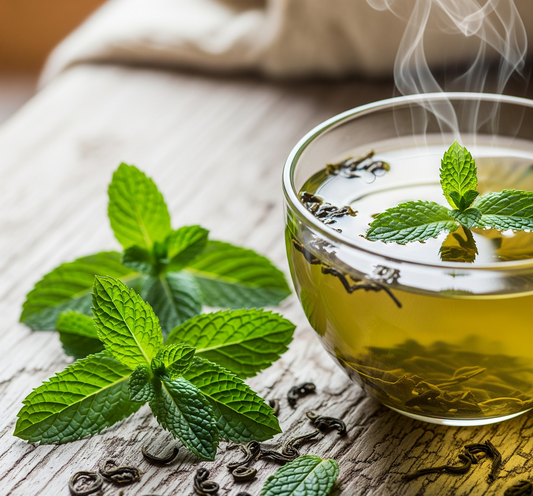The Contemporary Roles of Women in Tea; Focus on Nepal
Originally posted on Tching.com

A New View of Women In Tea
Growing up in Nepal (a very male-dominated society) in a household of 6 sisters, I realized my brother and my privilege as males early on. From simple things such as the kind of clothes we wore to the kind of societal norms we had to follow, it was quite distinct that I had a lot of advantages over my sisters even though I was the youngest. This bothered me to a degree when I was a kid and bothers me more now that I am older, married, and a bit wiser!
Fast forward to the present day; I’m now involved in the tea business, (Nepal Tea) and I am seeing the differences starkly in the tea industry.
With this article, the only thing that I can give you is minimal first-hand interview research on the roles women have played in the industry. Coming from Nepal, a lot of these interviews and anecdotes are from my sisters and other younger women in the tea industry. However, I have also managed to get an interview with one of the very special people that I want to have to tea with sometime in her own factory, enjoying the teas made by herself in India.
I could and would have included a lot of success stories around the world about women who have achieved greatness in the tea industry – and there are a lot of them. I personally know some of them who have led in the tea industry as successful founders, CEOs, and many other executive roles. This, if I am not mistaken, is mostly in the developed countries.
Therefore, I really want to talk about and bring light to some of the women that I know in the Nepali and Indian Tea industry who might not come off as industry leaders or veterans in the industry; but more importantly amazing women who are among the first working in the tea industry and knowingly or unknowingly becoming role models for future generations!

How and when did you get into tea and the tea industry?
Both of my parents cultivate tea for a living and sell green leaves to the neighboring factories. I was always fascinated by the way my mother hand-processed some of the extra tea leaves at home. My curiosity for a better processing technique dragged me into joining the Bachelor of Tea Technology and Management. Therefore, I was able to combine my heritage, passion, and curiosity into a viable professional career in tea.
How did it feel when you guys were among the very few women in the tea industry?
While the perception of women in the tea industry is quite limited to plucking and sorting, I really felt dignified and proud of myself to be among the few women who were professionally educated in tea and in a managerial position. My most significant achievement was when a rural farmer said “I want to educate and make my daughter like you, Menuka.”
How difficult/easy was it to enter and work in the tea industry? Any personal positive/negative experiences that you’d like to share?
Well, most people including my family, mentors, and colleagues appreciated my hard work and dedication. However, there was still the stigma of prioritizing “Sir” over “Miss./Ms.” and conforming to the fact that women can also be as knowledgeable as men in the tea production side. I feel a lot of our new ideas, innovative techniques/technologies were simply dismissed because of our gender rather than our expertise.
What is your advice to other young women who want to join the tea industry?
I believe that the tea industry cannot sustain and function without the younger generation and I highly encourage anyone and especially young females to explore the tea industry as a viable career path. The tea industry especially, Nepali tea industry can really benefit from more women involved in the management, operation, and executive levels.
Menuka aims to implement IOT ( Internet of Things) in the agricultural sector of Nepal. That includes predictive analysis for smart farming, greenhouse automation, end-to-end farm management system, and so on. She wants to inspire youth on agriculture and change the concept of agriculture in Nepal.

How and when did you get into tea and the tea industry?
When I reflect back, I realize that as a child I was surrounded by “businesses” one of which was the tea farm. I got married during my bachelor’s and fortunately, both of my families prioritized education and I got a master’s in sociology while I was pregnant with my first child. I always had this dream of getting into banking but one very spontaneous question from my husband completely changed my life. While I was almost confirmed to a banking role, he asked me “Are you going to be a person who “gets” a job, or would you rather be a person that “gives” a job?
With a lot of thought, I jumped in to help my father run the family business realizing this had a much greater impact than earning a salary through a corporate job. This was my initial introduction to the tea industry and I do not regret a bit my decision to take a 360 turn in my career.
How did it feel when you guys were among the very few women in the tea industry?
I believe I am the second Nepali women who got into the tea industry from a management/executive level. The first being my younger sister Tara. It was a bit weird at first but now I really feel fortunate to work alongside my younger sisters to really inspire the younger crowd of especially women to break the barriers and be a force for change.
How difficult/easy was it to enter and work in the tea industry? Any personal positive/negative experiences that you’d like to share?
It was definitely not easy. The most difficult part was to gain the confidence of all the men in the room that we, as women, we leaders and are capable of running a business. Initially, it was common for us to not be included in important high-level meetings but now the most highly meetings do not even start without us. In fact, we are the ones organizing these meetings and setting policies.
I remember one of our clients coming to our office looking for a “sir” who could help him with a wholesale relationship and went back after seeing a woman in the decision-making seat. Apparently, he called my father and when my father directed him to me again, he was quite ashamed to have disrespected not just me but the general stereotype men seem to have about women in leadership positions. He still apologizes to me reminiscing his ignorance at the time! While this is just one instance, I have multiple stores similar to these.
What is your advice to other young women who want to join the tea industry?
I have very simple advice to the younger folks especially women interested in the tea industry: Learn the virtue of patience! Patience is key in any business but it is especially important in the tea industry. Once you get into the industry, you’ll rarely be able to get out. Even to this day, women’s businesses are very limited to I challenge young women to get into tea processing. Let’s create a workforce that is actually creating the tea itself! I would love to see and promote women tea makers in Nepal and around the world.
Shanta is currently the managing director of Kanchanjangha Tea Estate, Secretary of FNCSI, and a board member of several governmental/non-governmental organizations working in agriculture, trade, and women empowerment.

How and when did you get into tea and the tea industry?
Growing up in the hills of the tea capital of the country, I formally got into the tea industry after she completed her bachelor’s in Tea Technology and Management. She started working for Tinjure Farmer Tea Cooperative as a marketing and business development coordinator in October 2016.
How did it feel when you guys were among the very few women in the tea industry?
I feel very proud to be able to showcase what is possible not just in the tea industry but in general when you seize the opportunity. As a professionally educated woman in tea and as the project leader at the cooperative, I felt great to be managing a women’s group at Tinjure. I believe it to be quite inspirational.
How difficult/easy was it to enter and work in the tea industry? Any personal positive/negative experiences that you’d like to share?
Unfortunately, there are still a lot of challenges for women in leadership positions. As a woman, it was challenging to stay away from my family and work in the field. Women have to take both the responsibility at home and on the field. This can make time management a challenge!
What is your advice to other young women who want to join the tea industry?
Women who are capable, are still lagging behind because of culture and the old orthodox way of seeing women in society. Therefore, it is very important for families to encourage women to get involved in the tea industry and reach leadership levels.

How and when did you get into tea and the tea industry?
Tea was a part of every conversation in our family when I was growing up. There were around 100 tea bushes in our backyard. I vividly remember as a young kid, one of my uncles hand-rolling the tea leaves. He would drink the hand-rolled black tea with salt for energy. I even remember the conversations my parents used to have about how they have invested everything they had in this tea farm and that they needed to make this successful.
When I working on my bachelor’s degree and practically had nothing to do during the day since classes were early in the morning, my mom asked me to go to the nearby tea office and help out in any possible way. Interestingly, the first day I casually visited the office, we received one of our biggest international tea orders. Everyone thought I was the lucky charm and one thing led to another and here I am working in the same office for over two decades.
How did it feel when you guys were among the very few women in the tea industry?
I felt really good and proud in fact. I would hear other tea colleagues talk to my father saying how interesting that he was already passing on the baton to his daughters and that they would want to do the same. While it did feel good, there were quite a lot of challenges just to get accepted in the tea culture and the tea industry. I guess people were only familiar with seeing women plucking and sorting tea and not running the show. I felt motivated by the fact that I was setting an example in the industry. I still remember passing a steep hill in one of our garden visits and thinking to myself, why did my father really start this tea garden when it was practically an impossible feat. The deep gorge changed something in me and I promised myself that whatever he has started I am going to take it to the next level.
How difficult/easy was it to enter and work in the tea industry? Any personal positive/negative experiences that you’d like to share?
I have to say the road was not that easy especially when most of the clients, producers, colleagues I was working with were all men. However, I am very grateful to my Doma Jee, who was a visionary leader and my teacher in the business. She guided me every step of the way and encouraged me to level with the men in the industry.
A negative experience that I remember is when people especially men would just assume that I was in the family business because I was incapable to do anything else and it was just easy for me to help my father. While it might have seemed so to a typical male-donaminant elite, I and my sisters have been successful in proving them just the opposite.
What is your advice to other young women who want to join the tea industry?
The tea industry is not a quick money-making career but it is a lifestyle and if you want to get into it, you’ll have to dedicate not just your time and energy but compassion from the heart. I highly encourage youths and especially women to get into technical fields and help improve the tea industry. It is much needed.

How and when did you get into tea and the tea industry?
Though my parents were tea growers themselves in the tea capital of Nepal, I got to understand tea when I was in Sikkim, India for high-school. After I found my inner interest in tea, I came back to Jhapa (southern part of the country) to study Tea Training and Management. Even before completion, I was able to work for Tokla Tea Estate under the Nepal Tea and Coffee Development Board as the only female in the management team.
How did it feel when you guys were among the very few women in the tea industry?
While the gender stereotypes did exist, I was able to navigate the tea industry with confidence and work in various organizations throughout the years. It felt great to prove that women should be limited to just plucking and sorting tea but they can work effectively in operational and management roles as well.
How difficult/easy was it to enter and work in the tea industry? Any personal positive/negative experiences that you’d like to share?
The tea industry at the management level is pretty much dominated by men but I was able to train under the Manager/Deputy General Manager of one of the biggest tea institutions of Nepal so I feel grateful. I was mostly delighted to be playing a significant role in encouraging women in the tea sector.
What is your advice to other young women who want to join the tea industry?
I would advise young women to roll up their sleeves and get to work in proving themselves in the operations and management side of the tea industry. If the youth show interest in the tea industry, no one in the village will be left unemployed and together we can make a difference. I highly encourage youths and especially women to explore the various opportunities in the tea sector and not just be bogged down by gender stereotypes.

How and when did you get into tea and the tea industry?
Though I was born on the tea farm, I never pursued the path of tea entrepreneurship until late in my career when I became a mother for the first time. I have a master’s degree in law with an interest in litigation and my own law firm but with some complications in my pregnancy, I had to dedicate much more time to raising my dear son, Adwait. While I was exploring opportunities I thought to myself, “Maybe I cannot take my child to the courtroom but I can definitely take my child to a boardroom”. Hence, the idea of starting my own venture came to fruition. My familiarity with tea and the need in the local market just because of the right avenues at the time and I started Baskota Group to exclusively distribute our teas in the local market. This was my formal introduction to the tea industry.
How did it feel when you guys were among the very few women in the tea industry?
It was quite an interesting experience, to be honest. From shrewd comments and patronizing behaviors to some form of acceptance, I have found a mix of all things. Some even said I was just trying to “seem” busy by becoming the CEO of a family business. It was interesting though. While people will always say things, I am a person who mostly proves through actual results and that’s exactly what I did. Currently, I lead a major political party in Nepal as the national coordinator which has definitely busted the stereotype.
How difficult/easy was it to enter and work in the tea industry? Any personal positive/negative experiences that you’d like to share?
As a women CEO, I did face some challenges at the start where people would not really take me seriously. Furthermore, my personal difficulties with raising a child made it even more challenging. However, I do recall a small incident that really gave me an idea about how I can balance all of this. A distributor asked me for a meeting and rather than calling him to my office, I asked if he would be open to going on a walking meeting with my son accompanying us. As it turns out, that was the best meeting he had ever had and we got in business fairly soon. As it turns out, my son enjoyed the walk and I did too. It gave me a great lesson in business as well; rather than hiding weaknesses, being authentically vulnerable creates sustainable relationships which are the building blocks of business.
What is your advice to other young women who want to join the tea industry?
My advice to women and young people, in general, is that don’t get discouraged if your first career option does not work, life has many different options and maybe your second choice might ultimately be the best one. While I always dreamt of litigation as a lawyer, I am super content with my tea career and would never go back. If I had to give tea industry-specific advice, I would say patience is key in the tea and persistence is key in the tea industry. If you’re thinking about generating immense wealth overnight, the tea industry is definitely not for you but if you’re looking to build a multi-generational business with great name recognition and a chance to impact the world positively, the tea industry is probably the best platform.

How and when did you get into tea and the tea industry?
While I was born on a tea farm and have fond memories of playing with the big factory pulleys when I was young, my real work in tea began only after I was quite frustrated working in a crowded city with a monotonous job on a shoestring budget. With a generous offer from my father, a long-time tea producer/trader, I got to explore the industry from the inside and be able to get immersed in it.
How did it feel when you guys were among the very few women in the tea industry?
Initially, it was very different and quite weird since no one would take me seriously. It was a mix of things really since the area we were located in, Konoor is full of tea gardens and only men managed a tea farm. It was quite radical to see a woman running a factory let alone making purchase decisions for the tea leaves.
How difficult/easy was it to enter and work in the tea industry? Any personal positive/negative experiences that you’d like to share?
A few similar incidents that I recall vividly are when people would not negotiate with her or take her seriously when she set the prices. They would ask her to call her father to negotiate the prices and make the deal. While it took quite some patience and persistence, everyone has not gotten used to the fact that I and my team of women make the decisions here and that has really created a spark of changes around the area.
What is your advice to other young women who want to join the tea industry?
My advice and recommendation to young women who want to enter the tea industry are that they need to love tea and have that drive and passion towards the art of tea. While it takes time to create change, it will always be worthwhile to be that face of change and set an example.

Again, these are just stories for us to get inspired from and I am not here to judge anyone’s thoughts and opinions but merely to discuss an important topic that is important to me and want to know what other people think about? I want you to take these stories as a starting point and find, read, share other stories of women working in the tea industry so that we can shed more light on the industry’s status.
So, my question to you, as a social entrepreneur who is taking in the mission of getting at least a million farmers out of poverty within their generation, what can I do to help women join the industry? What are our responsibilities as a tea business to close this gap in the industry? I would love to get any thoughts and insights on this.





Women in Tea
Comment (1)
Makes me happy to have discovered such a good company that’s trying to improve life for your local community and more importantly for women.